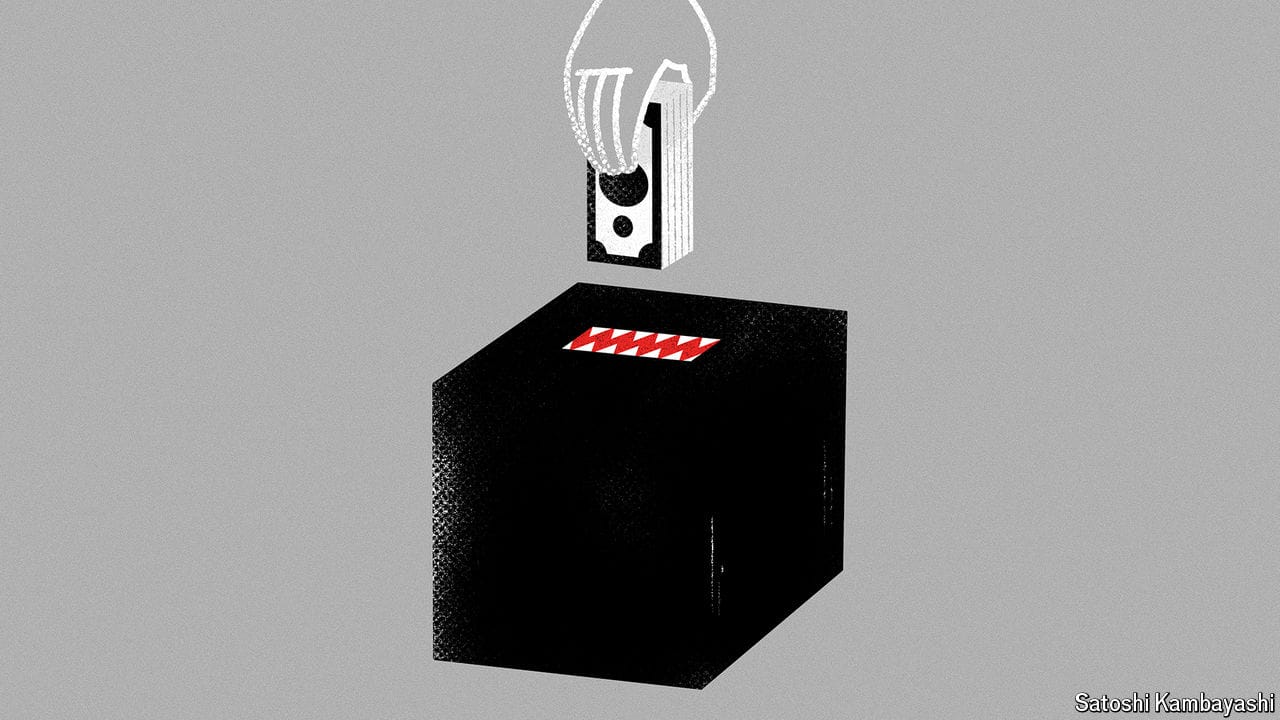Frozen Russian assets will soon pay for Ukraine’s war
And America now hopes to convince others to make better use of the stash

After Russia destroyed the Trypilska power plant on April 11th, Ukraine blamed a lack of anti-missile ammunition. The country’s leaders are also desperate for more financial support. The two shortages—of ammunition and money—reflect different constraints among Ukraine’s allies. Whereas the lack of ammunition is mostly the product of limited industrial capacity, the lack of money is the product of limited political will.
In one area, though, there are signs of progress: over what to do with Russia’s frozen assets. After Vladimir Putin invaded Ukraine, Western governments quickly locked down €260bn-worth ($282bn) of Russian assets, which have remained frozen ever since. Proposals about what to do with them have ranged from the radical (seize them and hand them over to Ukraine) to the creative (force them to be reinvested in Ukrainian war bonds). Until recently, none has found widespread favour with Western governments.
Explore more
This article appeared in the Finance & economics section of the print edition under the headline “Drip into torrent”
Finance & economics April 20th 2024
- Frozen Russian assets will soon pay for Ukraine’s war
- Even without war in the Gulf, pricier petrol is here to stay
- Citigroup, Wall Street’s biggest loser, is at last on the up
- China’s better economic growth hides reasons to worry
- Generation Z is unprecedentedly rich
- Why the stockmarket is disappearing
- Can the IMF solve the poor world’s debt crisis?
More from Finance and economics

China’s last boomtowns show rapid growth is still possible
All it takes is for the state to work with the market

What the war on tourism gets wrong
Visitors are a boon, if managed wisely

Why investors are unwise to bet on elections
Turning a profit from political news is a lot harder than it looks
Revisiting the work of Donald Harris, father of Kamala
The combative Marxist economist focused on questions related to growth
Donald Trump wants a weaker dollar. What are his options?
All come with their own drawbacks
Why is Xi Jinping building secret commodity stockpiles?
Vast new holdings of grain, natural gas and oil suggest trouble ahead
